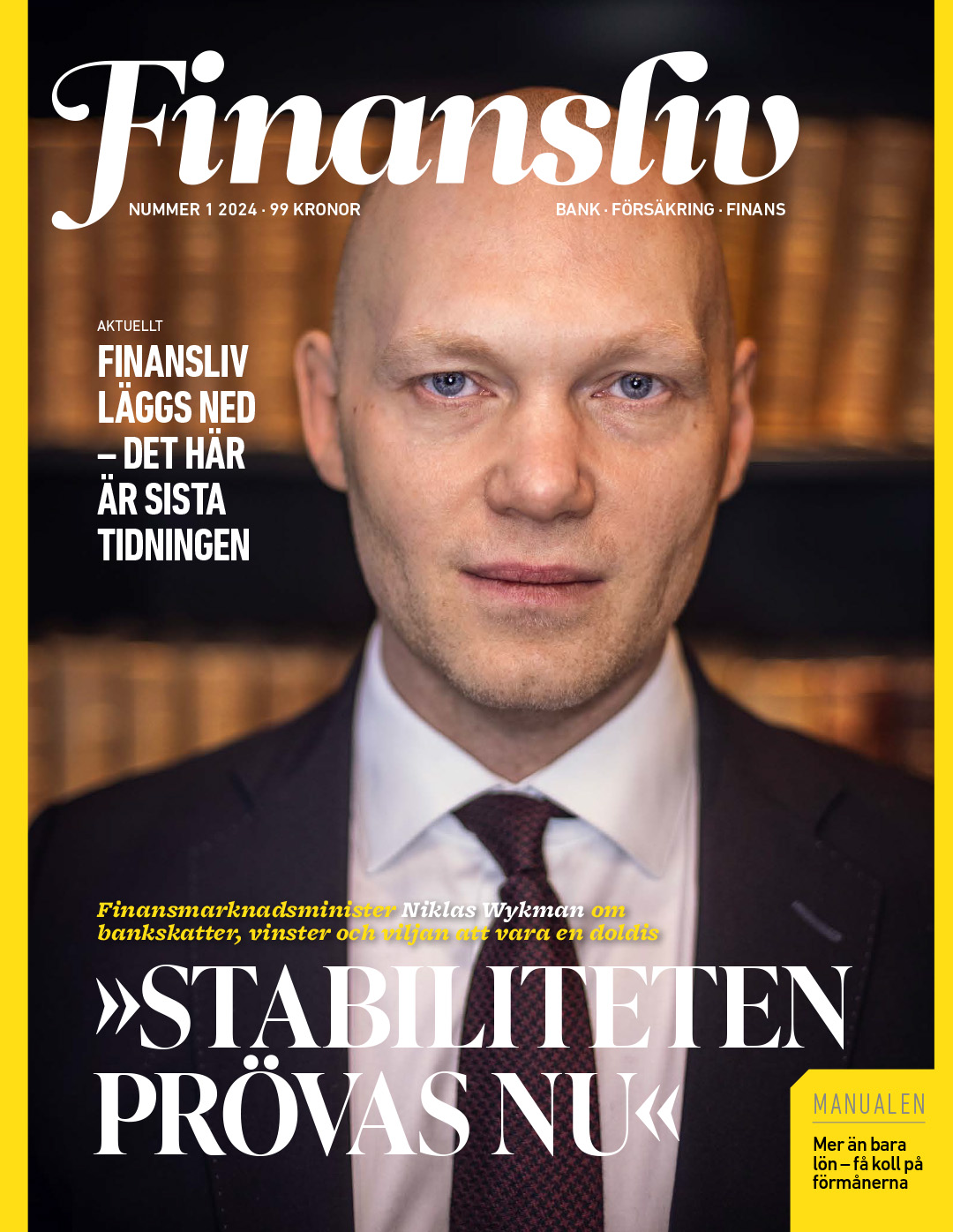
Eight times higher unemployment rate among foreign born
The Swedish finance sector is not open for all. The unemployment rate among foreign born bank clerks is eight times higher than among natives, Finanslivs investigation shows. Nine people with foreign background tells Finansliv about hundreds of applications without any answer, promotions going to less qualified candidates and a finance sector full of discrimination.
The unemployment rate among foreign born bank clerks and accountants is more than eight times higher than among natives, Finanslivs investigation shows.
For auditors, financial analysts, and fund managers the unemployment rate among foreign born is more than seven times higher, and for managers in banking, finance, and insurance it’s more than six times higher than among native managers.
Finansliv’s investigation
Finansliv has investigated the unemployment rate among natives and foreign-born in three occupational categories: Bank clerks and accountants; auditors, financial analysts, and fund managers; and managers in banking, finance, and insurance.
By comparing data from Statistiska Centralbyrån (SCB) on the number of foreign-born and natives in each category with data from Arbetsförmedlingen on the number of unemployed in each category, it is evident that foreign-born are strongly overrepresented in the unemployment rate.
Finansliv has examined the period 2019-2021, which is the most recent available data from SCB. Arbetsförmedlingen has more recent data, but it cannot be compared to the distribution in each occupational category.
SCB lists several occupations in each category, which means there is a possibility that unemployed people in other sectors than finance appear in the data. Unemployed refers to people actively seeking employment as well as people receiving activity support.
– The differences are astonishing. Appalling but important facts, says Amanda Lundeteg, CEO at the Allbright foundation, which reports on diversity and inclusion in the Swedish private business sector.
Olof Åslund is a professor in economics at Uppsala university. He studies migration and the labor market.
– A gap of eight times is of course very high. It indicates a large difference between natives and foreign-born peoples position in the labor market, he says.
9-13 percent of the employees in the finance sector are foreign-born. But among the unemployed almost half are foreign-born.
The gap between natives and foreign-born is twice as high in the finance sector compared to the labor market in general.
– That is a clear underperformance by the finance sector. It’s also ironic when we know that a lot of companies have skill shortages, and here you have a lot of people without a job, Amanda Lundeteg says.
There are probably many unreported cases. A lot of the people with foreign background that Finansliv has talked to have taken other jobs, because they can’t get into the Swedish finance sector. They are therefore technically not unemployed and cannot be seen in the statistics.
The Swedish finance sector is small, and personal network and contacts have a high impact, which can explain the fact that there is less diversity in the finance sector than the labor market in general, according to Amanda Lundeteg. The sources Finansliv has talked to has the same view.
A gap of eight times is of course very high. It indicates a large difference between natives and foreign-born peoples position in the labor market.
– Many has studied at the same school, live in the same area, and has the same hobbies. It’s easier to choose people like yourself. That is the case in all sectors, but the smaller and more homogenic the sector is, the higher the chances are of hiring like-minded people, Amanda Lundeteg says.
Olof Åslund has a similar explanation. The causes behind the large gap can be lack of qualification, but also lack of network, and discrimination.
– There is strong evidence of discrimination in the labor market, of foreign-born people being rejected. It is also a fact that many positions are filled through informal networking, such as personal contacts. If you don’t have that network your chances are poorer, Olof Åslund says.
Finansliv has examined the unemployment rate for the three occupational categories over three years: 2019-2021. There is not yet any statistics for 2022, it will be published early next year.

Babak Hakimi: »It cannot be a coincidence«
The study shows large differences in unemployment rate between foreign-born and natives throughout the entire period, but the development differs between the occupational categories. For bank clerks and accountants, the gap was even bigger in 2019. At that time, the unemployment rate among foreign-born was eleven times higher than among natives.
For auditors, financial analysts, and fund managers the gap between foreign-born and natives decreased from 2019 to 2020 but increased in 2021. For managers in banking, finance, and insurance the gap has increased significantly throughout the period and is almost twice as big in 2021 as in 2019.
Nothing indicates any improvement since 2021. In 2022 half of the unemployed in the finance sector was still foreign-born.
An explanation that is often mentioned as to why ethnic diversity has fallen behind compared to gender equality is that it’s more difficult and sensitive to measure. But Amanda Lundeteg do not agree.
– Of course, it can be a sensitive subject to some individuals, and you need to respect that. But there are good methods. In some cases, you can measure foreign background, in others you can use equality data, a method based on anonymity, self-identification and consent. If you measure in a correct way and clarify your intentions, that the point is to highlight discrimination, not to register people based on race.
We measure all sorts of things so why shouldn’t we be able to measure diversity? It comes down to priorities.
Fatima, which is a fictious name, works for one of the larger banks in Sweden, but wish to remain anonymous. She does not think difficulties in measuring is an adequate explanation.
– You can measure ethnic diversity, but it requires a good process and people who can interpret the data. The banks have all that, we measure all sorts of things so why shouldn’t we be able to measure diversity? It comes down to priorities. It’s also a question of Pandora’s box, I think, they are afraid of what they will find.
Finansliv has previously reported on the difficulties people with foreign background experience in the Swedish finance industry. In a story published in 2021 several sources said that the right network, the right background, and a Swedish surname was key to enter and pursue a career in the sector.
The lack of diversity within the Swedish finance sector stands out globally. When OECD reviewed the representation of foreign-born in finance sectors, Sweden ranked among the lowest, at number 35 of 39 countries.
Amanda Lundeteg is not surprised.
– Sweden is one of the countries where discrimination linked to racism in the labor market is most common, much more so than in the US, for instance. Only in the last few years have we started talking about racism at work, we are still immature in this conversation. We are insecure about the terms and how to measure.
Our self-image is part of the problem, according to Amanda Lundeteg. Sweden has come a long way in gender equality, which makes us think that the same applies to ethnic diversity.
Talking about racism is sensitive in Sweden, in my experience it’s much easier to talk about sexism and gender equality.
– Talking about racism is sensitive in Sweden, in my experience it’s much easier to talk about sexism and gender equality. We like to think that we are colorblind, that we don’t judge people based on the color of their skin or their name. But a lot of us who are brown or black know that’s not true, Amanda Lundeteg says.
Fatima agrees.
– They say it’s all merit-based, but do they mean that people with foreign background lack merits? That’s discriminating. I think it’s quite simple. Look around you at the subway, does it look about the same at your job? If not, then it’s not based on merit.
Research also shows that there is ethnic discrimination in the Swedish labor market. In a new study at Stockholm university, 5 600 applications for non-authentic individuals were used to apply for real jobs in the labor market. The applications had equivalent qualifications, but Swedish or foreign-sounding names. The study shows that the applications with foreign-sounding names got fewer positive call-backs.
– The result shows that there is ethnic discrimination in the recruiting process, says Anni Erlandsson, affiliated researcher at the Stockholm University Demography Unit (SUDA) at the Department of Sociology.
There is discrimination in the recruiting process in both high and low qualified jobs, the study shows. Men with foreign-sounding names are slightly more discriminated against than women with foreign-sounding names.
– The result is consistent with most European studies. I have not studied the mechanisms behind, but one possible explanation found in research is stereotypical ideas of gender and ethnicity as well as social norms regarding the status of different groups of people, for instance that men with a certain foreign background can be perceived as a threat, whereas women with the same background are not, Anni Erlandsson says.
She hopes that her research will create a greater awareness of the discrimination in the Swedish labor market.
– If you are aware of the problem there is a possibility to change it. The labor market is segregated, people with foreign background have lower income in general. This study shows that discrimination in the recruiting process contributes to ethnic inequality, Anni Erlandsson says.
Sean George, a recognized figure in the finance sector, has highlighted the inequality in finance before. In a story published in Finansliv in 2019, he talked about how his difficulties getting into the Swedish finance sector, despite his Swedish background and 20 years of experience from Wall Street.
– It was hard at first. Sweden is not as open as you might think, and the Swedish finance sector is unfortunately quite closed and homogenic. Many people with foreign background have similar experiences and a lot of skill is lost, Sean George said then.
Sean Georges current job as a bond trader at JP Morgan in London prevents him from talking to media, but everyone Finansliv has talked to can relate to his story.
Nine persons tells how difficult it is getting into the Swedish finance industry if you have a foreign background, and that advancing in your career is just as hard. Here are their stories.








